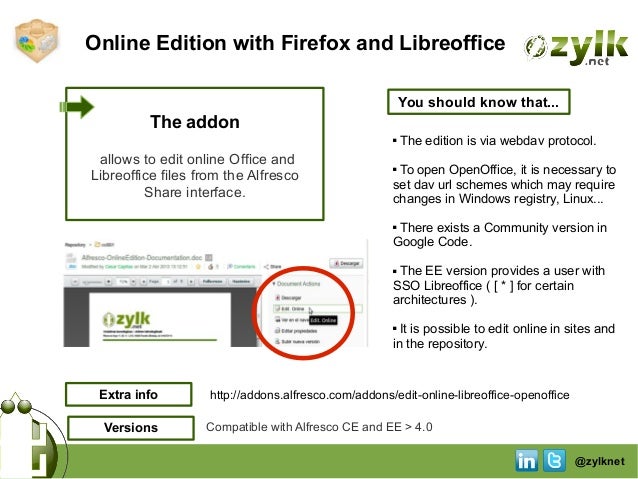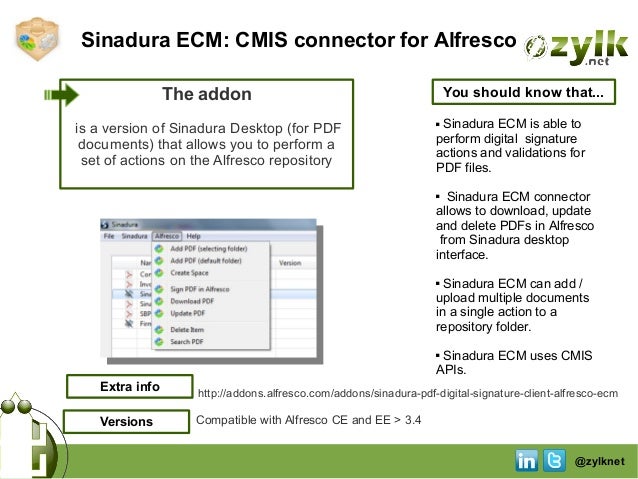
- #BITNAMI ALFRESCO COMMUNITY ADDONS HOW TO#
- #BITNAMI ALFRESCO COMMUNITY ADDONS FOR MAC#
- #BITNAMI ALFRESCO COMMUNITY ADDONS INSTALL#
- #BITNAMI ALFRESCO COMMUNITY ADDONS GENERATOR#
- #BITNAMI ALFRESCO COMMUNITY ADDONS PASSWORD#
But this can be done using default npm tools. It's not required to build or download this project in order to use it.
#BITNAMI ALFRESCO COMMUNITY ADDONS PASSWORD#
Default credentials: none (or the username and password chosen) If you included a different server name from localhost (for instance ), the services will be available in or If you selected https, the services will be available in If you selected a different port (for instance 8080), the services will be available in These are default URLs, selecting HTTP port 80. $ docker volume rm $(docker volume ls -q -filter name=tmp_) Following lines should be commented in docker-compose.yml file. Identifying the right UID for every folder can be obtained by starting Docker Compose without the volumes declaration. You can skip all the following steps and have the volumes automatically configured by using the create_volumes.sh script optionally created during the project creation. When using from Linux, some permissions on your local folders need to be set. In order to enable persistent storage, several Docker Volumes are configured by default. └── modules > Deployment directory for addons │ └── assets > Additional configuration to communicate with Alfresco Repository │ ├── Dockerfile > Docker Image for ocrmypdf program │ ├── postgres > PostgreSQL database logs │ ├── alfresco > Alfresco Repository logs ├── docker-compose.yml > Main Docker Compose template │ └── solr-data > Internal storage for SOLR │ ├── postgres-data > Internal storage for database │ ├── ocr > Temporal folder shared between Alfresco Repository and OCR │ ├── activemq-data > Message Store for ActiveMQ │ ├── alf-repo-data > Content Store for Alfresco Repository ├── data > DATA STORAGE (it's recommend to perform a backup of this folder) │ └── localhost.key > Private part for the SSL Certificate │ ├── localhost.cer > Public part for the SSL Certificate ├── config/cert > SSL Certificates (only when using HTTPs) │ └── nginx.htpasswd > Password to protect the access to Solr Web Console │ └── ssh > Shared key to communicate with OCR Service │ │ └── jars > Repository addons with JAR format │ │ ├── amps > Repository addons with AMP format │ ├── modules > Deployment directory for addons │ ├── bin > Shell script to communicate with OCR Service │ ├── Dockerfile > Docker Image for Alfresco Repository
#BITNAMI ALFRESCO COMMUNITY ADDONS INSTALL#
Once Node.js is installed, you can install Yeoman as a module: Or you can use any of the package managers provided by the product: You can download and install Node.js from official web page:
#BITNAMI ALFRESCO COMMUNITY ADDONS HOW TO#
Also checkout this tutorial with video recording on how to use this tool in Ubuntu 20.04 LTS: Installing Alfresco 6 Community Edition in Ubuntu Review the Docker Volumes section before running the produced Docker Compose template.


This alternative is enabled when choosing "Windows host" option in the generator.
#BITNAMI ALFRESCO COMMUNITY ADDONS FOR MAC#
#BITNAMI ALFRESCO COMMUNITY ADDONS GENERATOR#
This generator creates a base Docker Template with the configuration selected, but you should review volumes, configuration, modules & tuning parameters before using this composition in Production environments.

Despite deployments using Docker Compose are considered a valid approach for ACS deployment (Community and Enterprise), this alfresco-docker-installer tool is not the official Alfresco recommendation. IMPORTANT This project is not supported by Alfresco in any way.


 0 kommentar(er)
0 kommentar(er)
